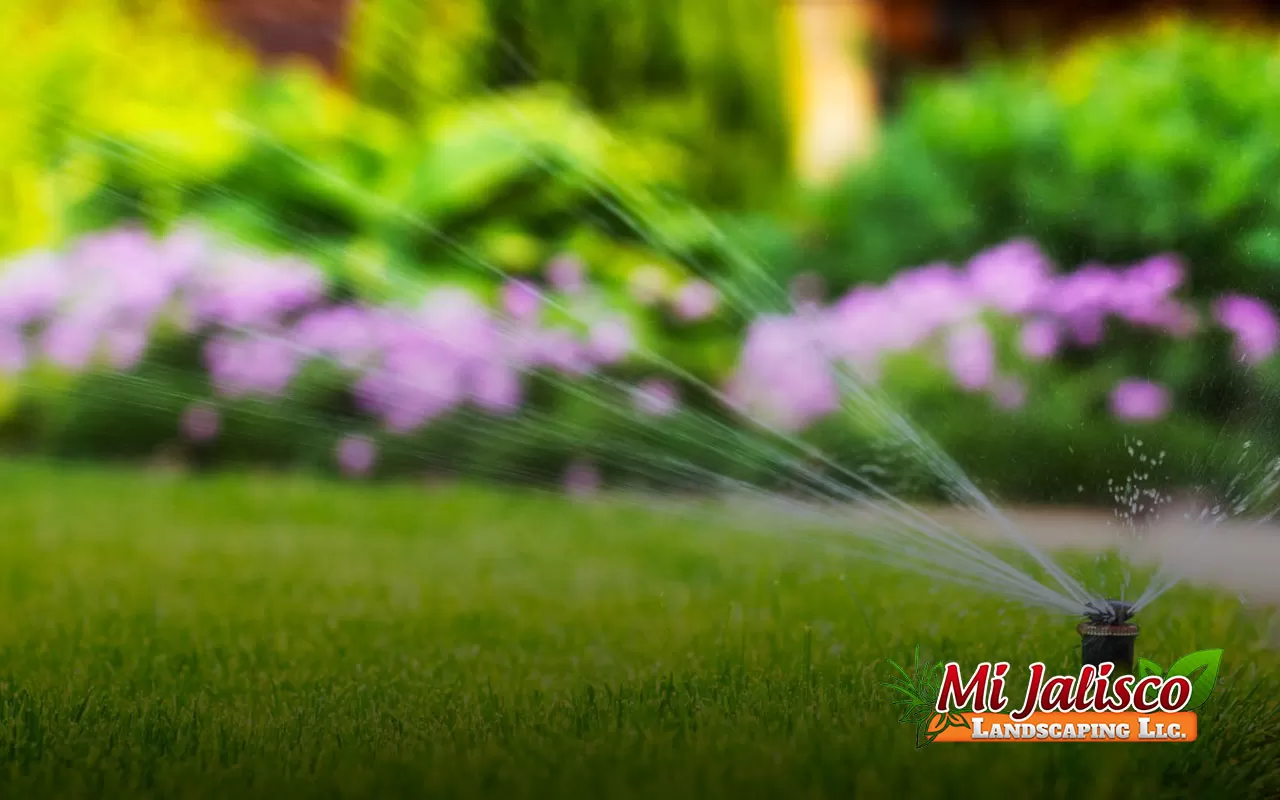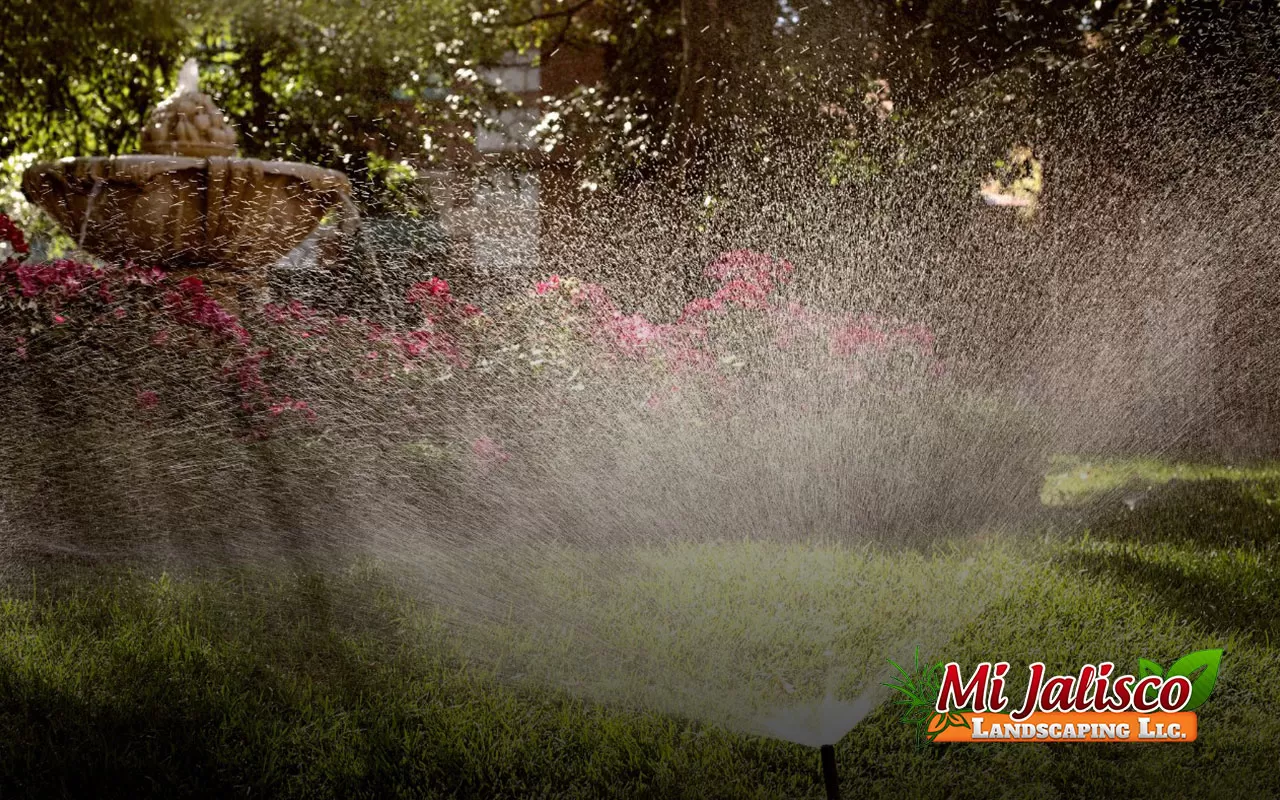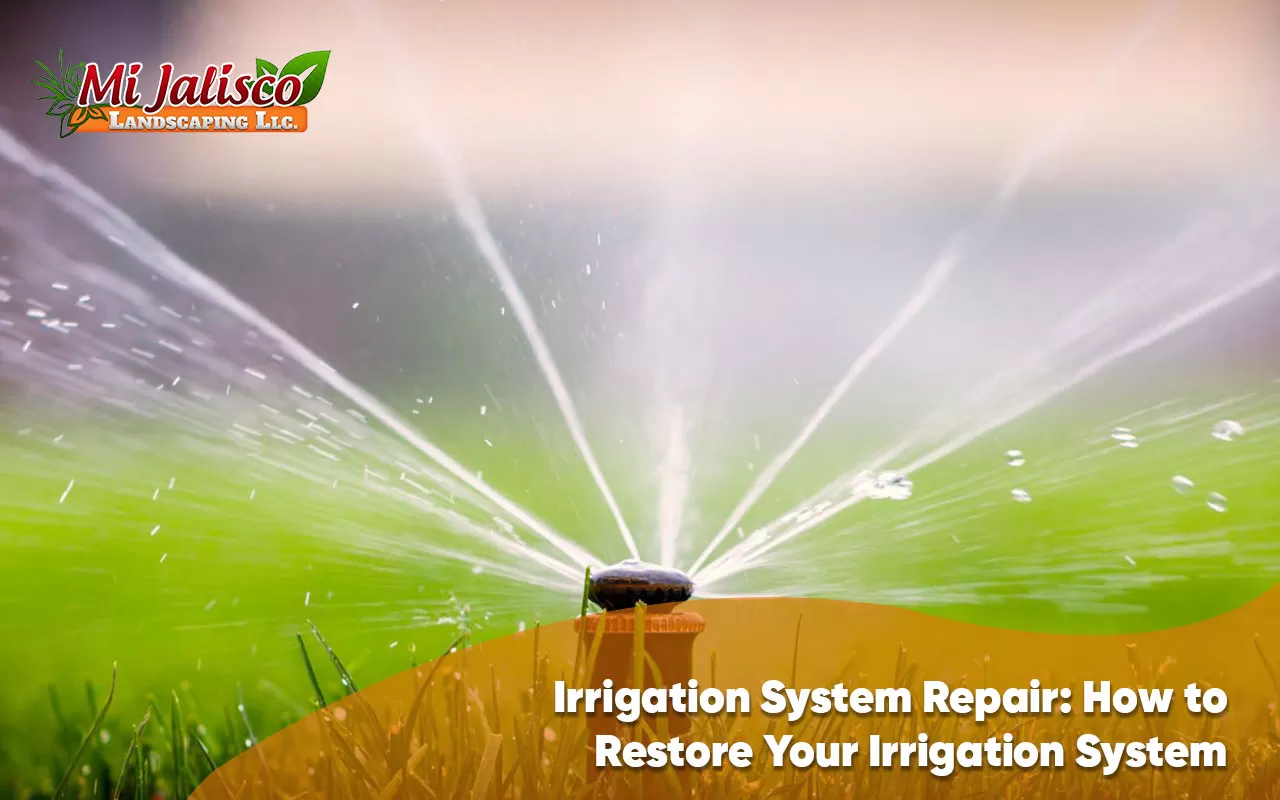In this article:
What Causes Irrigation System Damage?
How Can Irrigation System Damage Be Repaired?
Avoid Potential Issues by Repairing Your Irrigation System
Understanding Irrigation System Repair: A Guide for Homeowners and Property Managers
Common Problems and Warning Signs with Irrigation Systems
Professional Inspection and Repair Services
Components of an Irrigation System and How They Work
DIY Repairs: Tips and Tricks for Homeowners
Preventive Maintenance for Your Irrigation System
Finding the Right Irrigation System Repair Contractor for Your Needs
What is involved in irrigation system repair? Maintaining a healthy and efficient irrigation system is essential for any homeowner who wants to keep their lawn in optimal condition. In addition, irrigation systems need regular maintenance and repair to maintain their proper functioning and prevent damage from occurring over time. In this article, we will discuss some of the most common issues with irrigation systems and how to go about repairing them.
What Causes Irrigation System Damage?
Irrigation system damage can be caused by various factors, including wear and tear from regular use, weather-related damage such as freezing temperatures or heavy rains, wildlife or pests damaging the system, and poor installation or maintenance of the system. Irrigation systems that have been neglected for long periods are particularly vulnerable to damage.
How Can Irrigation System Damage Be Repaired?
Depending on the cause of damage, repairing an irrigation system can range from simple repairs to complete replacement. Homeowners with basic DIY skills can often handle minor repairs, such as replacing broken sprinkler heads or repairing small leaks. An experienced irrigation repair technician will likely need to be called for more complex damage.
Irrigation technicians are knowledgeable about the components of an irrigation system and have the necessary training and tools to diagnose and repair any issues. In addition, irrigation system repair typically involves checking the valves, filters, and sprinklers to ensure they are working correctly and replacing any parts that are no longer functioning.
Avoid Potential Issues by Repairing Your Irrigation System
Moreover, irrigation system repairs should be done as soon as possible to avoid potentially expensive water bills due to damaged systems.
However, completely replacing an irrigation system may be necessary in some cases. Irrigation technicians can advise on the best type of system for your particular needs and install it quickly and efficiently. Notwithstanding, irrigation system replacement is often a more cost-effective option than extensive repairs, as it will ensure that your sprinklers are functioning correctly for many years to come.
Contacting a qualified Irrigation technician like us is essential, no matter what irrigation repair or replacement you require. Certainly, we can help diagnose the problem and will be able to determine the best course of action for your particular system. With their expertise and experience, our experts can get your system back up and running quickly and efficiently.
Understanding Irrigation System Repair: A Guide for Homeowners and Property Managers

Common Problems and Warning Signs with Irrigation Systems
If an irrigation system is installed on your property, you must watch for warning signs of damage or wear and tear. Then, you should learn about the common issues of an irrigation system.
- Poor water pressure: Low water pressure can reduce the effectiveness of irrigation and lead to inefficient watering results.
- Leaks and flooding: Any leaks in an irrigation system will not only waste a significant amount of water, but also lead to oversaturation of specific areas, which can damage lawns or other nearby plants.
- Clogged nozzles: Nozzles can become clogged with deposits or debris, leading to unequal water distribution or over-watering areas.
- Inadequate coverage: Without proper coverage throughout the entire area, some sections may be over-watered while others may not be receiving enough water.
- Poorly timed watering: Without a proper irrigation scheduler, plants may be watered too often or infrequently, leading to unhealthy growth and potential damage over time.
- Inefficient water usage: Depending on the type of system you have in place, you may be wasting water and resources. This situation can lead to higher bills and an unnecessarily large carbon footprint.
Professional Inspection and Repair Services
Professional inspection and repair services for irrigation systems are essential to maintain the health of your system. Moreover, without regular maintenance, the performance of your irrigation system can suffer, leading to costly repairs or even replacement down the line. With our professional inspection and repair services, you can rest assured that any issues with your system will be identified quickly and addressed appropriately.
Components of an Irrigation System and How They Work

Before you can repair an irrigation system, it’s essential to understand how it works.
An irrigation system is composed of several components that work in tandem to provide water and nutrients to a specific area. These components include
- Pumps
- Filters
- Valves
- Sprinklers
- Nozzles
- Pipes
- Tubing
Pumps
Pumps are integral to an irrigation system; they move water from a source, such as a river or a lake, to the sprinkler heads. The pump must be powerful enough to push water through the irrigation system with sufficient pressure to reach all areas. They come in many sizes, such as electric, gas, or solar-powered pumps.
Filters
Filters protect the pipes and nozzles from debris that can clog them up over time. These filters come in various sizes and shapes, from simple mesh filters to more complex backflow preventers.
Likewise, filters are used to keep the irrigation system free from debris, leaves, and other particles that could clog up the lines or damage the sprinklers. Filters come in various sizes and capabilities, from simple mesh filters to more complex backflow preventers. Backflow preventers help protect water supplies by preventing backflow contamination, ensuring clean water delivery to your landscape.
Valves
Valves control water flow through the irrigation system and are used to turn on or off sections of the irrigation system as required. Depending on the system requirements, they can be manual or automatic and come in various sizes and types.
Sprinklers
Sprinklers are used to distribute the water over a specific area; they come in two main forms – rotating or fixed-head sprinklers. Rotating sprinklers can be adjusted according to the site size and coverage needed, while fixed-head sprinklers provide uniform water delivery over a given area.
As well, controllers, timers, and sensors are essential components of an efficient irrigation system. Controllers automate the scheduling process by allowing users to customize the start and run times for each section of their sprinkler system. Timers have multiple programs that will enable scheduling based on specific weather conditions like temperature, humidity, and rainfall. Sensors monitor weather conditions to detect inadequate moisture levels in the ground and adjust irrigation accordingly.
All these components work together to create an efficient, cost-effective system that saves water and energy while providing optimal landscape maintenance.
DIY Repairs: Tips and Tricks for Homeowners
It may be possible to fix the problem with minor irrigation system repairs. DIY irrigation repairs can be a great way to save money and time while ensuring that your garden is adequately watered. However, before you tackle any repairs, it’s important to understand the basics of how an irrigation system works and what components are needed for a successful repair.
One of the first things you should know when repairing an irrigation system is the type of system you have. There are both automatic and manual systems, and each requires slightly different repairs. Automated systems tend to be more complicated to repair since they require sophisticated components like timers, valves, and pressure regulators. Manual systems are more straightforward since they only need a few accessories, such as hose connectors and nozzles.
Understand the Elements of an Irrigation System
It is also essential to understand the basics of a water supply system. This part includes knowing where the primary water source is located, which pipes lead to each sprinkler head, and how to adjust the pressure regulator to get an even water flow throughout the system. Indeed, understanding these elements helps you determine what kind of repair needs to be done and how to do it best.
When considering a sprinkler system repair, you should also consider the budget available for the project. Manual systems are generally more cost-effective since fewer components are needed and require less maintenance. Automated systems, however, often feature advanced features that can improve water efficiency or provide additional convenience.
Preventive Maintenance for Your Irrigation System
One of the best ways to avoid costly irrigation system repairs is to practice preventive maintenance.
A well-maintained irrigation system is essential for the health of plants and gardens. In addition, proper preventive maintenance can help you avoid costly repairs or replacements. As with all mechanical systems, regular inspection and maintenance are crucial to ensuring optimal performance. Here are some tips on how to take care of your irrigation system:
1. Check for Leaks
Check your irrigation system regularly for any signs of water leaks, such as wet spots or pools of water around the system. Make sure all valves and fittings are tightly closed and free of damage.
2. Clean Filters
Dirt and debris can get caught up in your filters and reduce the water flow. Cleaning your filters regularly will help ensure your irrigation system is running at its best.
3. Check Sprinkler Heads
Ensure all sprinkler heads are working correctly. And then adjust them if they are misaligned, or replace them if necessary.
4. Inspect Pipes
Look for any signs of corrosion or damage in your pipes. If you find any, have them replaced as soon as possible to avoid further leaks.
5. Monitor Water Pressure
Check the water pressure in your system to ensure it is at an optimal level. Too much water pressure can cause a decrease in performance, and too little water pressure can lead to uneven watering.
6. Check Valves
Then, ensure all valves are in working condition and that there is no wear or tear. If needed, replace the valves or have them serviced professionally.
7. Monitor Weather Conditions
Pay close attention to weather forecasts, so you can adjust your system accordingly. If there’s a chance of heavy rain, take precautions such as turning off your system to prevent water damage.
8. Regular Maintenance
Have your irrigation system serviced regularly by a professional to ensure it is functioning properly and provide preventive maintenance if required.
Following these tips can help keep your irrigation system in working condition and maximize its efficiency. Keeping your irrigation system maintained and in good shape is essential to the health of your lawn and garden.
Finding the Right Irrigation System Repair Contractor for Your Needs
If you need to hire a professional contractor to repair your irrigation system, it can be challenging to know who to trust. There are so many variables to consider, including cost, reliability, and quality of service.
At Mi Jalisco Landscaping LLC., we have several years of experience delivering exceptional results. Thus, our experienced technicians specialize in repairing all types of irrigation systems, from residential to commercial. We possess the knowledge and expertise to ensure your system is repaired correctly, quickly, and efficiently.



